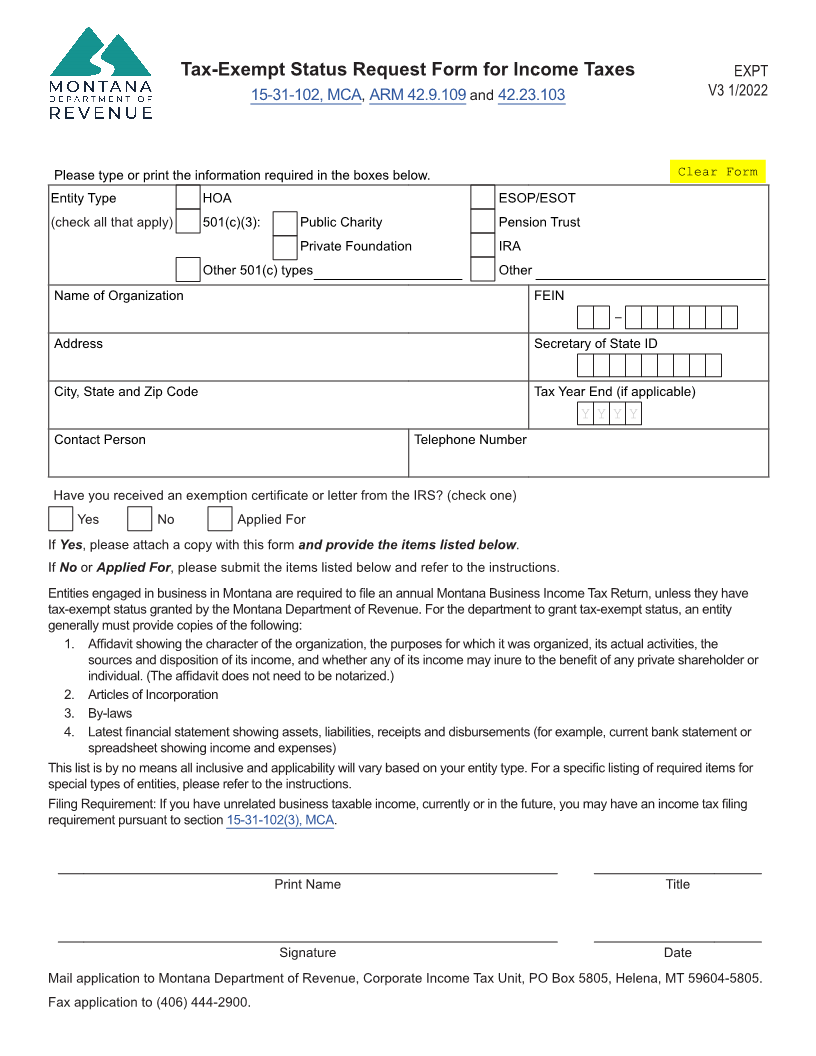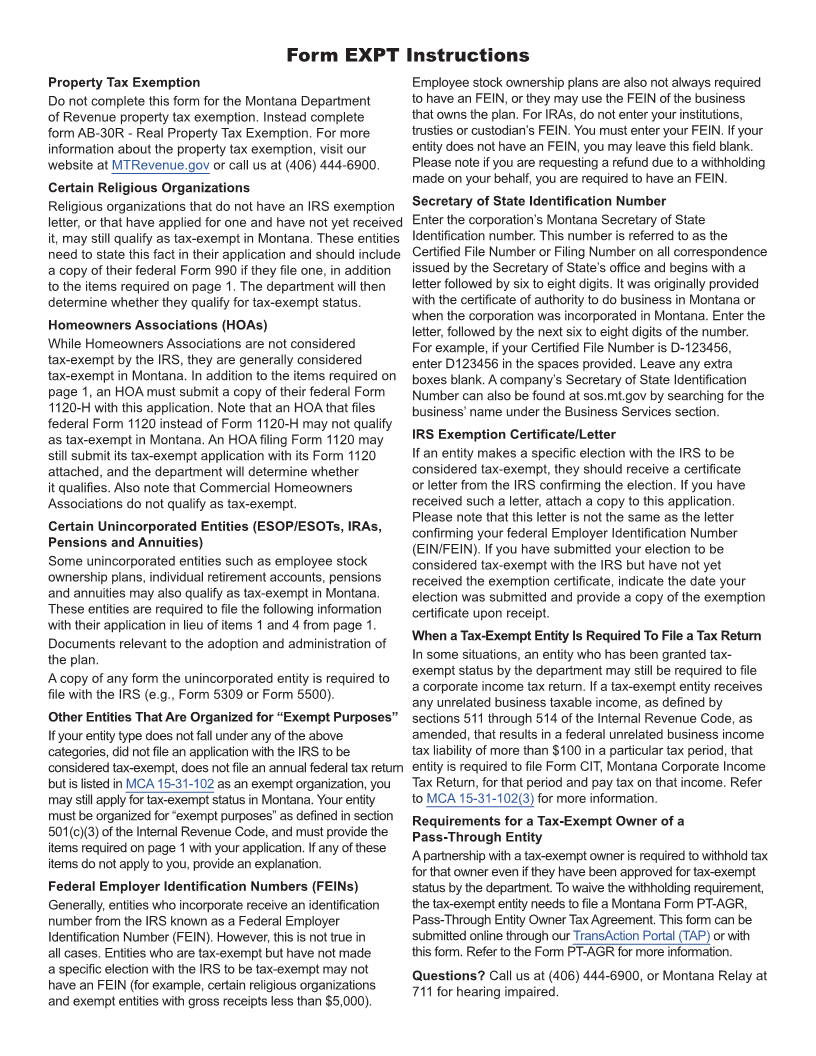
Enlarge image
Tax-Exempt Status Request Form for Income Taxes EXPT
15-31-102, MCA, ARM 42.9.109 and 42.23.103 V3 1/2022
Please type or print the information required in the boxes below. Clear Form
Entity Type HOA ESOP/ESOT
(check all that apply) 501(c)(3): Public Charity Pension Trust
Private Foundation IRA
Other 501(c) types ____________________ Other _______________________________
Name of Organization FEIN
-
Address Secretary of State ID
City, State and Zip Code Tax Year End (if applicable)
Y Y Y Y
Contact Person Telephone Number
Have you received an exemption certificate or letter from the IRS? (check one)
Yes No Applied For
If Yes, please attach a copy with this form and provide the items listed below.
If No or Applied For, please submit the items listed below and refer to the instructions.
Entities engaged in business in Montana are required to file an annual Montana Business Income Tax Return, unless they have
tax-exempt status granted by the Montana Department of Revenue. For the department to grant tax-exempt status, an entity
generally must provide copies of the following:
1. Affidavit showing the character of the organization, the purposes for which it was organized, its actual activities, the
sources and disposition of its income, and whether any of its income may inure to the benefit of any private shareholder or
individual. (The affidavit does not need to be notarized.)
2. Articles of Incorporation
3. By-laws
4. Latest financial statement showing assets, liabilities, receipts and disbursements (for example, current bank statement or
spreadsheet showing income and expenses)
This list is by no means all inclusive and applicability will vary based on your entity type. For a specific listing of required items for
special types of entities, please refer to the instructions.
Filing Requirement: If you have unrelated business taxable income, currently or in the future, you may have an income tax filing
requirement pursuant to section 15-31-102(3), MCA.
Print Name Title
Signature Date
Mail application to Montana Department of Revenue, Corporate Income Tax Unit, PO Box 5805, Helena, MT 59604-5805.
Fax application to (406) 444-2900.
